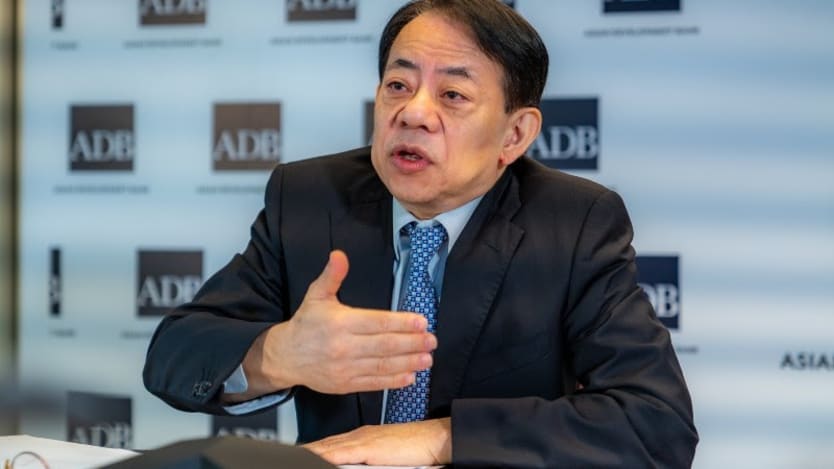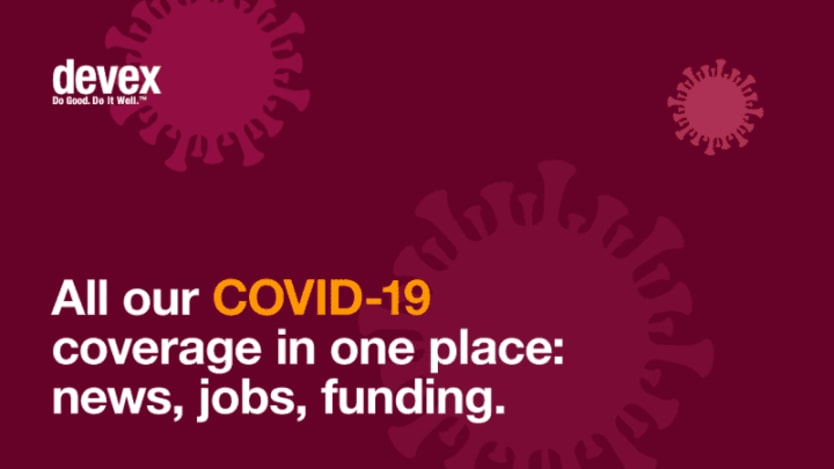
MANILA — The Asian Development Bank launched a $9 billion vaccine facility on Friday. The announcement comes amid global interest and demand for COVID-19 vaccines, one of which has received regulatory approval from a few high-income countries.
The Asia Pacific Vaccine Access Facility will help the bank’s low- and middle-income member countries in the procurement and delivery of COVID-19 vaccines. In a video message, ADB President Masatsugu Asakawa said estimated losses in low- and middle-income Asian economies for 2020 could be anywhere between $1.4 trillion and $2.2 trillion.
“Protecting people in our developing members, including the poor and the vulnerable, will keep people safe in other parts of the world,” Asakawa said.
COVID-19: A timeline
COVID-19 cases have reached over 69 million globally with over 1.5 million deaths. Read the latest updates in the COVID-19 timeline.
During the second part of the bank’s annual meeting in September, Asakawa had said “ADB will play a role in supporting the efforts of our developing members to secure access to safe and effective vaccines, and to formulate strategies for equitable delivery.”
The rapid response component is for the procurement and transportation of the vaccine, while the project investment component will focus on investments in the systems that would allow for the vaccines’ distribution, delivery, and administration.
Those investments will also help build capacity in countries on vaccine delivery, such as on vaccine cold-chain storage and transportation, the vaccine distribution infrastructure, processing facilities, and others, as well as on surveillance and community outreach. The component may also be used to develop or expand member LMICs’ vaccine manufacturing capacity.
The bank requires that vaccines meet one of the following criteria to be eligible for financing through the facility: It must be procured via the global vaccine initiative — more commonly known as COVAX — which aims for an equitable distribution of COVID-19 vaccines; the vaccine should receive prequalification from the World Health Organization; or receive regulatory approval from a “stringent regulatory authority.”
Additional criteria, such as countries’ vaccination needs assessment and allocation plan, as well as coordination with development partners “also help ensure that vaccine support under APVAX can be fairly and effectively implemented,” according to the bank.
ADB will be facilitating the procurement of the vaccines for member LMICs.
The bank also announced a $500 million Vaccine Import Facility. The facility will work with the private sector to support the importation of vaccines and other related equipment, according to a bank spokesman. It runs through the bank’s Trade and Supply Chain Finance Program, which provides guarantees and loans to banks to support trade.
“The import facility will work with banks, providing guarantees to mitigate the risk of non-payment in imports of vaccines and related equipment,” he said.
Private sector co-financing “could result in the Import Facility supporting $1 billion in vaccine and related imports within a year,” according to a news release.
ADB’s announcement comes on the heels of regulatory approvals in the United Kingdom, Bahrain, and Canada of Pfizer-BioNTech’s COVID-19 vaccine. Pfizer and BioNTech were also the first to announce efficacy results from phase 3 trials of their vaccine back in November.
Other vaccine candidates have since announced efficacy results as well, and others are expected to do so during the first quarter of 2021. It also follows the World Bank’s announcement in October of a $12 billion financial package to boost financing for COVID-19 vaccines.





